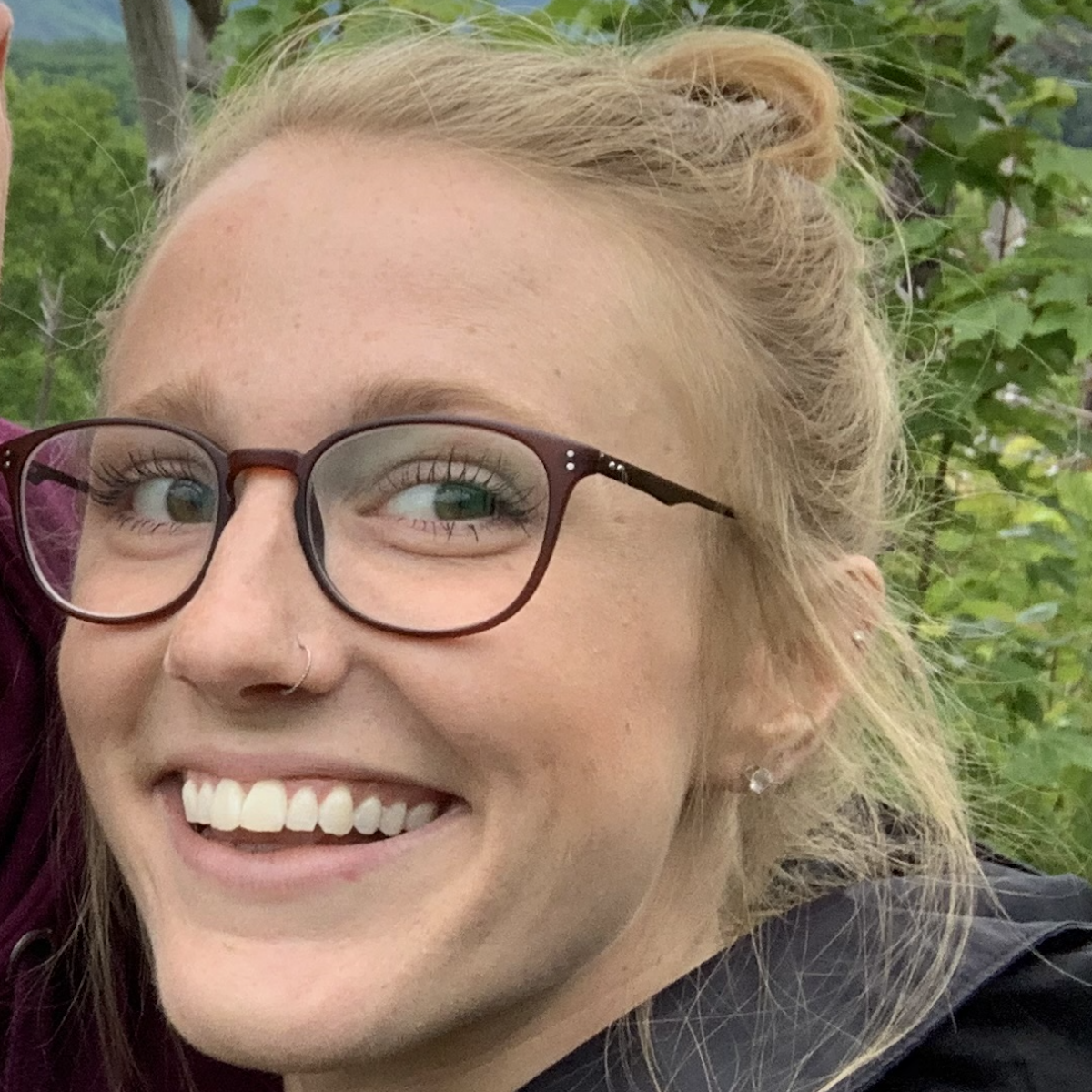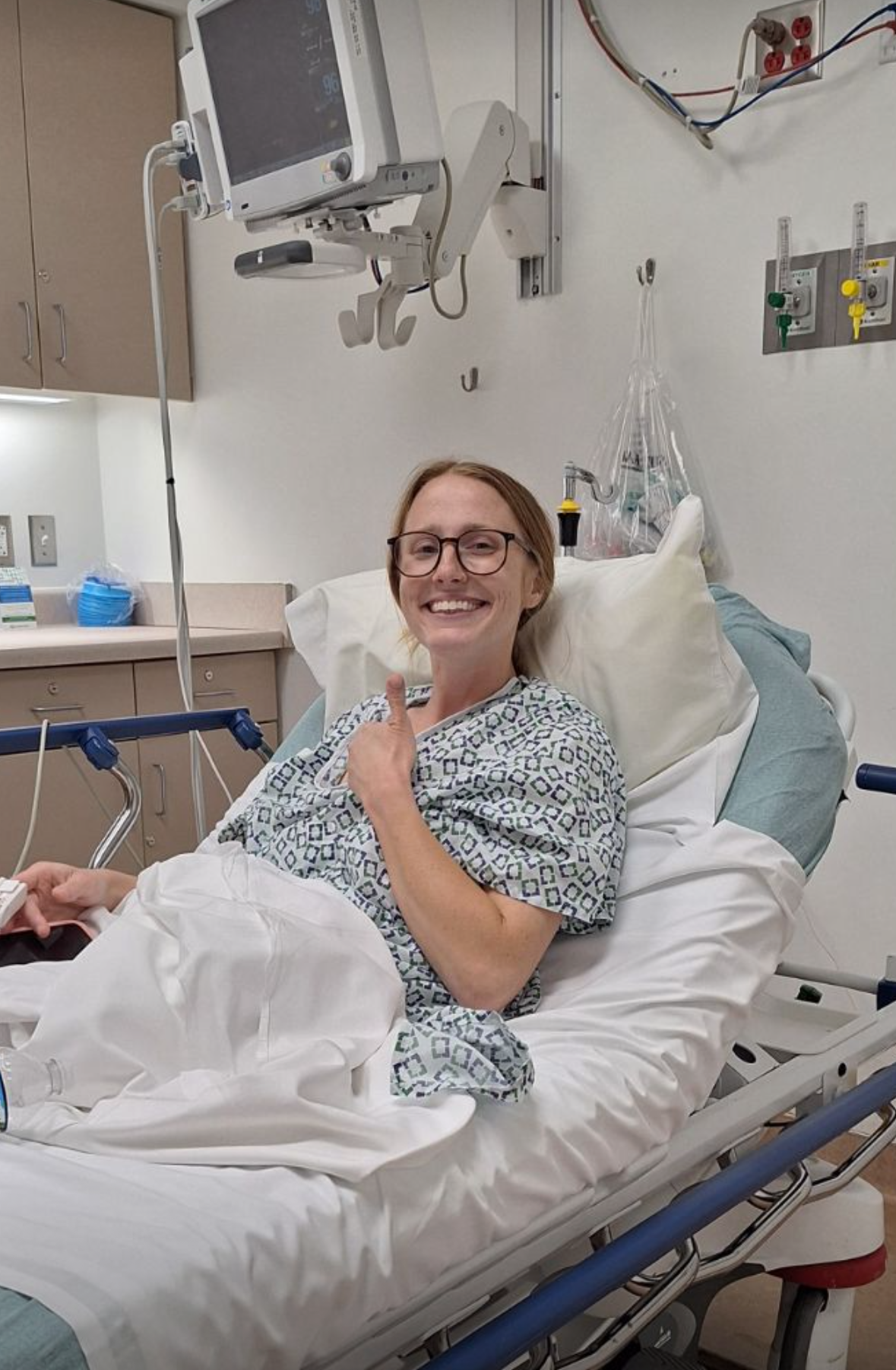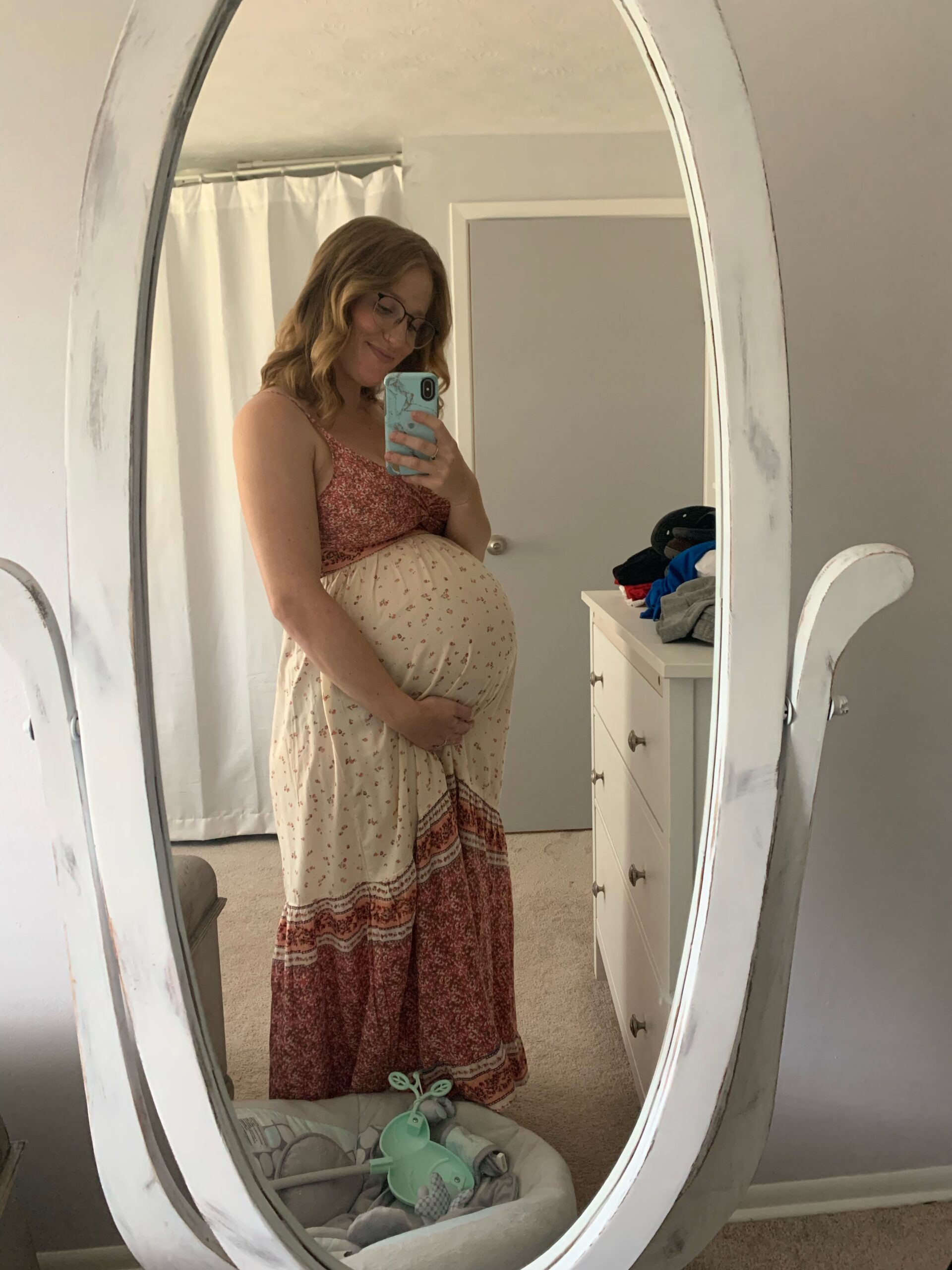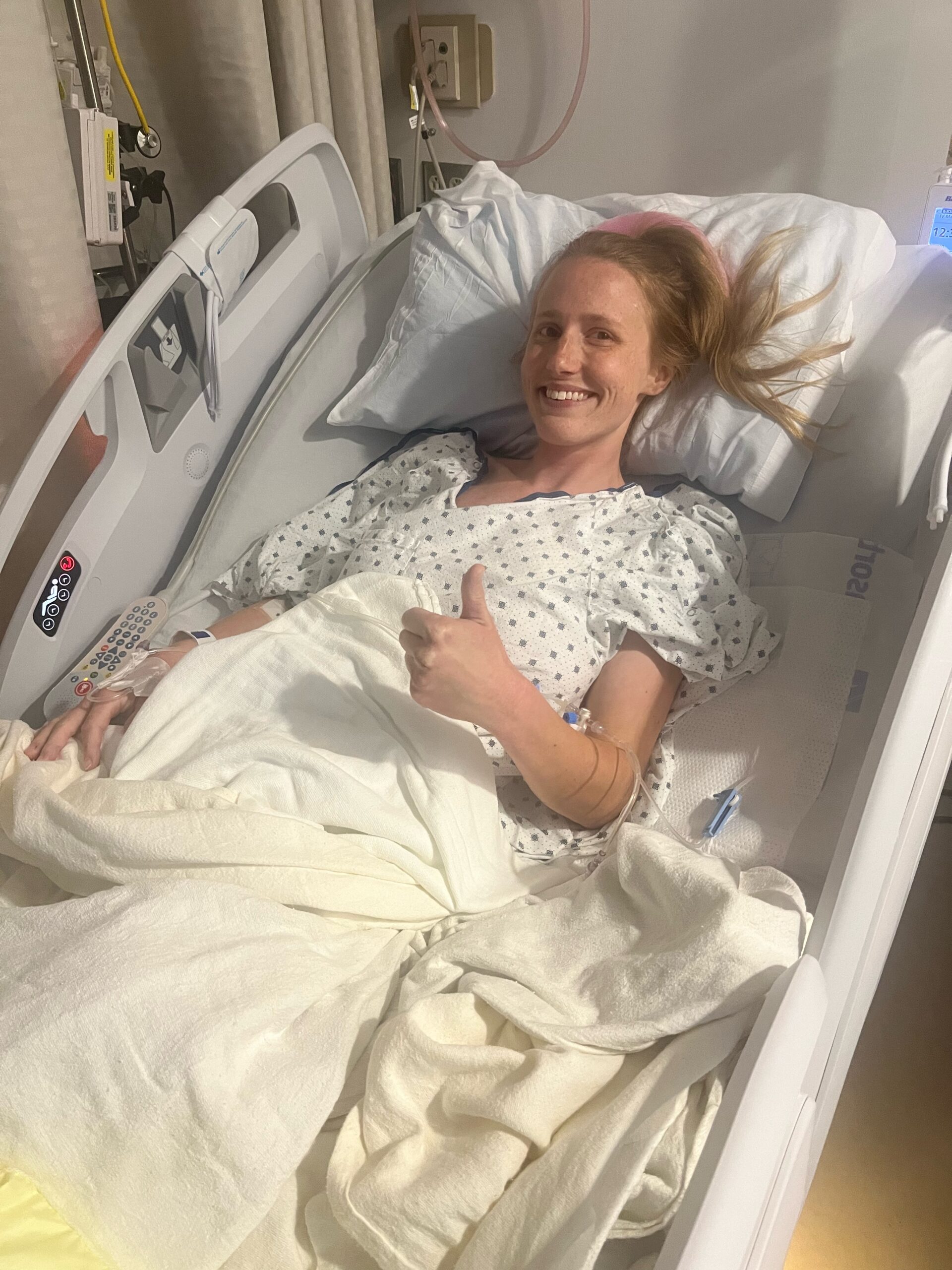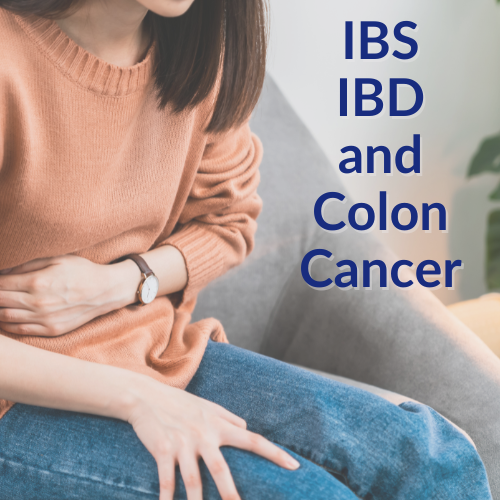From Isolation to Empowerment: Alli’s Experience with Ulcerative Colitis (IBD)
Alli was diagnosed with ulcerative colitis in 2019, but her experience started many years before that. Growing up, she was often the kid with a tummy ache, and by the age of three, she’d already had her gallbladder removed due to gallstones, something only adults usually go through. In college, her situation took a turn for the worse: she started experiencing constant stomach pain, extreme weight loss, and, eventually, blood in her stool. Despite years of being dismissed with diagnoses like irritable bowel syndrome and anxiety, Alli knew something deeper was wrong. It wasn’t until the visible symptoms escalated that doctors finally took her seriously and diagnosed her condition.
Interviewed by: Taylor Scheib
Edited by: Chris Sanchez
Living with ulcerative colitis, a kind of inflammatory bowel disease (IBD), meant dealing with overwhelming fatigue, feelings of isolation, and the anxiety of an unpredictable future. Alli describes how hard it was to be gaslit regarding her condition and to try to explain her condition to friends and family who couldn’t fully grasp what she was going through. She regrets not joining support groups earlier, realizing how valuable it is to connect with others who truly understand.
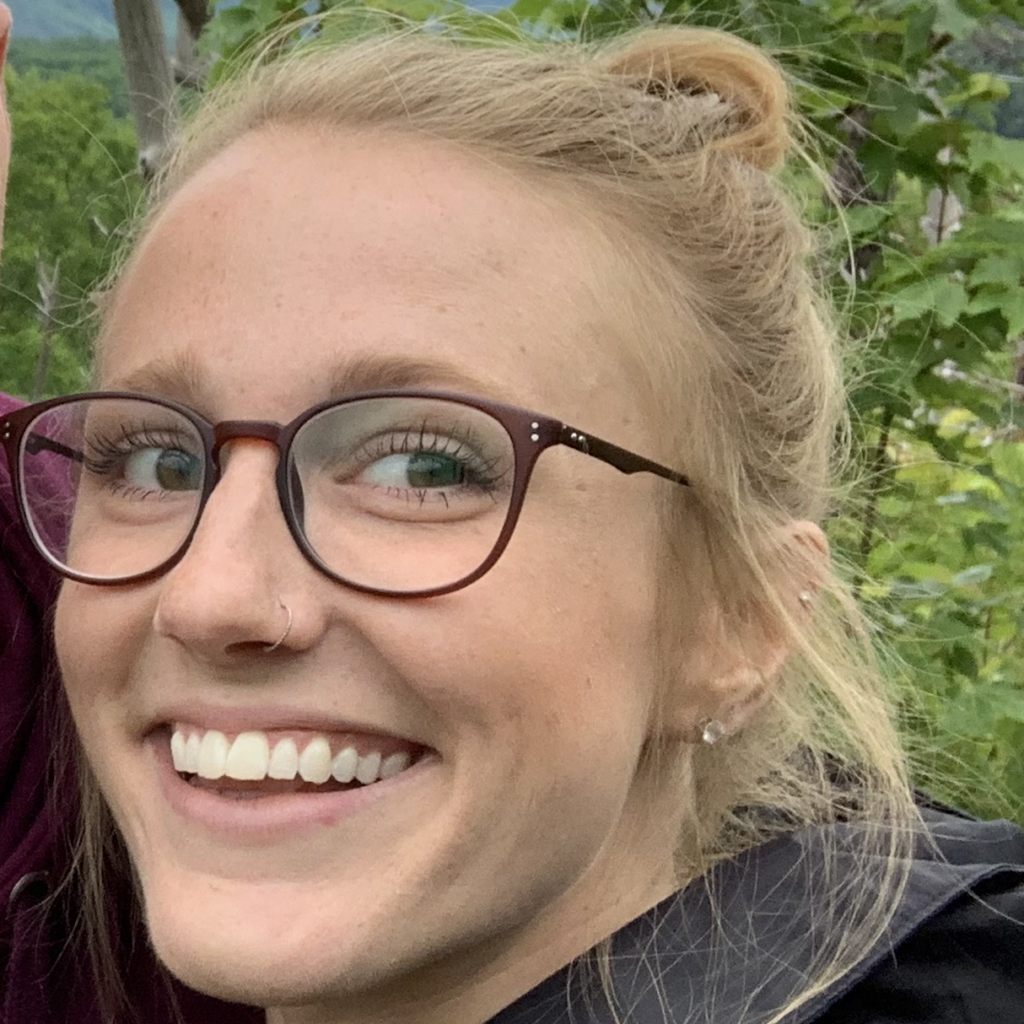
For years, Alli tried different medications, but nothing offered lasting relief. Her health declined rapidly, with her weight dropping to 100 pounds due partly to a loss of appetite and her spending a lot of time in the bathroom. As a stay-at-home mom with two kids, it was heartbreaking not being able to care for her family the way she wanted to. Eventually, faced with limited medication options and a desire for a better quality of life, she chose to have an ileostomy.
Waking up post-surgery, despite the pain from the procedure itself, Alli felt incredibly relieved. Adjusting to life with an ostomy bag wasn’t easy, but she quickly embraced it, realizing that it gave her freedom she hadn’t felt in years. She could eat again, more than she ever could before surgery, and she was no longer bound by the fear of sudden symptoms. The emotional toll of ulcerative colitis had been heavier than the physical symptoms, leading to deep depression and anxiety. With her health stabilized, she found her mental well-being improving, too.
Alli now advocates for ulcerative colitis awareness, ostomy acceptance, and mental health support within the IBD community. She openly shares her story to help others feel less alone, hoping to normalize conversations about living with an ostomy. Her messages? An ostomy doesn’t define you, you are more than that bag — and yes, life gets better.
Watch the video to hear from Alli about:
- The emotional side of ulcerative colitis that no one talks about and how she faced it head-on.
- What it’s like living with an ostomy — Alli gets real.
- The turning point: Why she chose surgery and never looked back.
- From college struggles and missing out to newfound freedom and making memories — Alli’s life after her ileostomy.
- Name:
- Alli R.
- Age at Diagnosis:
- 24
- Diagnosis:
- Ulcerative Colitis
- Symptoms:
- Blood in stool
- Unexplained weight loss
- Stomach pain
- Constant defecation
- Treatment:
- Surgery: ileostomy
This interview has been edited for clarity and length. This is not medical advice. Please consult with your healthcare provider for treatment decisions.
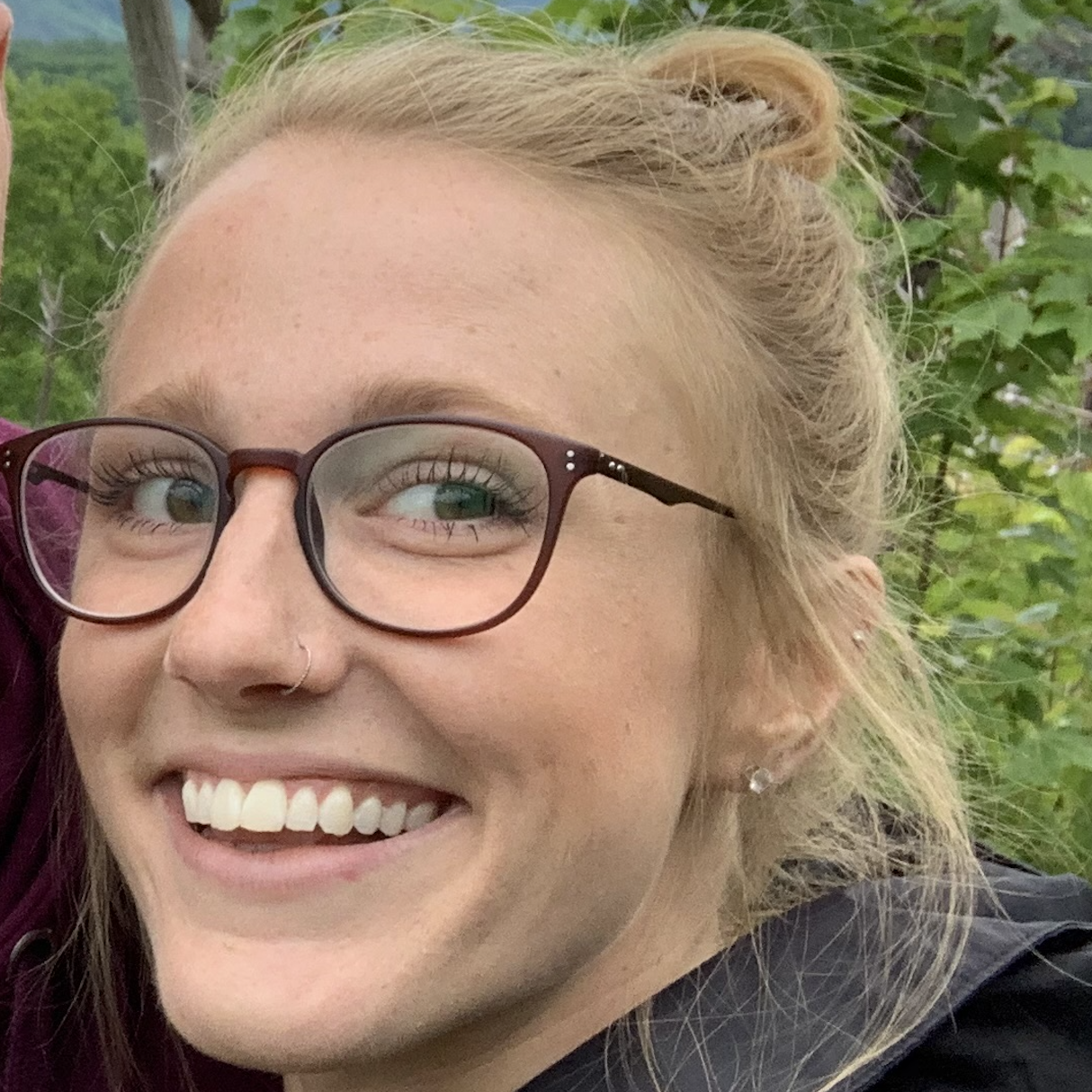
Inspired by Alli's story?
Share your story, too!
More Crohn’s and Colitis Stories
Kristen F., Crohn’s Disease (IBD)
Symptoms: Fatigue, abdominal cramps, blood in stool, loss of appetite, frequent and painful bathroom visits, perianal disease (open wound), mouth sores, joint pain
Treatments: Multiple medications, surgeries (temporary ostomy, total colectomy and permanent ostomy, Barbie butt surgery or proctectomy)
Jess G., Crohn’s Disease (IBD)
Symptoms: No appetite even when offered a favorite dessert, weight loss
Treatments: Steroids, blood transfusions, biologics, surgeries (colectomy, small bowel resection, colostomy)
Ariel D., Ulcerative Colitis (IBD)
Symptoms: Overactive bowel, heavy cramps in stomach area, abdominal pain
Treatment: Surgery (ileostomy)
Alli R., Ulcerative Colitis
Symptoms: Blood in stool, unexplained weight loss, stomach pain, constant defecation
Treatment: Surgery (ileostomy)
Sarah A., Ulcerative Colitis
Symptoms: Bowel irregularity, severe stomachaches, blood in stool
Treatments: Surgery (ostomy surgery), steroids, anti-inflammatory medication (mesalamine), biologic therapy
Dana D., Crohn’s Disease (IBD)
Symptoms: Abdominal pain, diarrhea, blood in stool
Treatments: Surgeries (colon resection, total proctocolectomy with end ileostomy,
abdominal perineal resection, myocutaneous flap), steroids, biologic therapy
